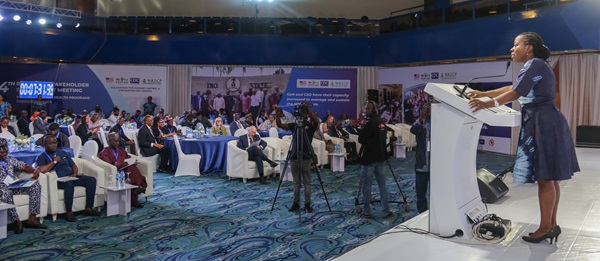
The U.S. Centres for Disease Control and Prevention (U.S. CDC) wrapped up its fourth Biannual Stakeholder Engagement Meeting today. Themed “Improving Public Health Programmes Through Science,” the two-day event served as a forum for sharing scientific insights and fostering collaborations.
On the opening day, state-HIV programmes and partners showcased their scientific work through 35 posters and 9 oral abstracts. The presentations underscored the importance of evidence-based program design and implementation. The Special Adviser to the President for Health, Dr. Salma Ibrahim Anas honoured select presenters and projects for their scientific contributions.
Day two featured presentations and panels focused on strengthening collaborations for effective public health programs. Speakers emphasised the crucial role of state ministries of health in achieving sustainable outbreak responses, immunisation systems and HIV programmes. Discussions centered on improving health outcomes and achieving HIV epidemic control at the sub-national level.
The U.S. CDC country director, Dr. Mary Boyd expressed enthusiasm for the scientific advancements in Nigeria. She thanked state and implementing partners for their commitment to following scientific evidence, noting that Nigeria aims to end HIV as a public health threat by 2030 and reach zero-dose children. She also highlighted the country’s efforts to enhance its ability to prevent, detect and respond to disease threats.
The meeting reflects the U.S. CDC’s commitment to regularly reviewing and adapting programming to address the evolving needs of the HIV response in Nigeria. The next meeting is scheduled for October 2024.


